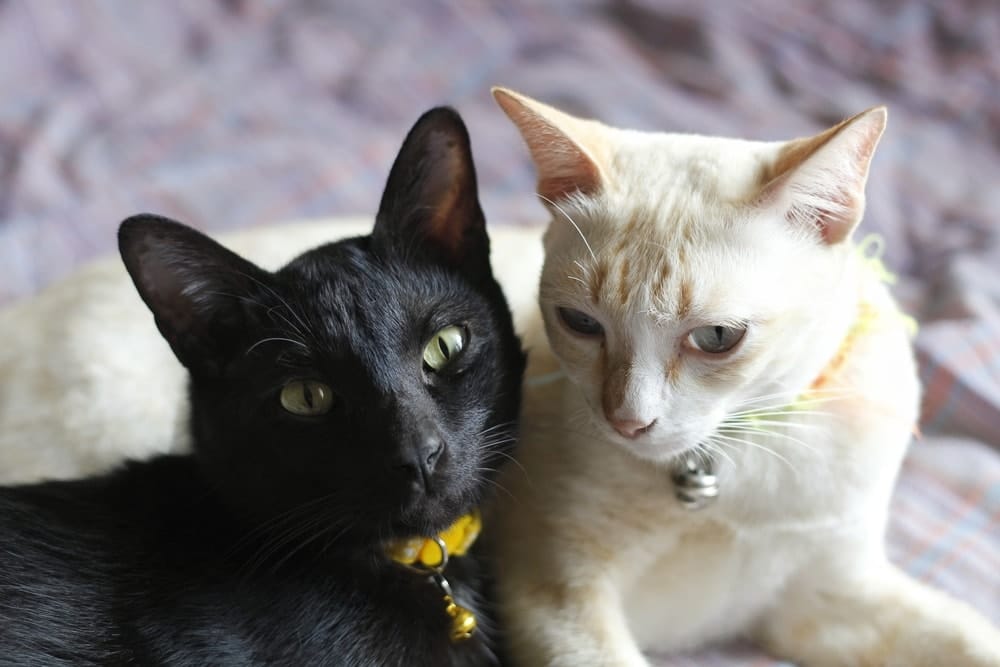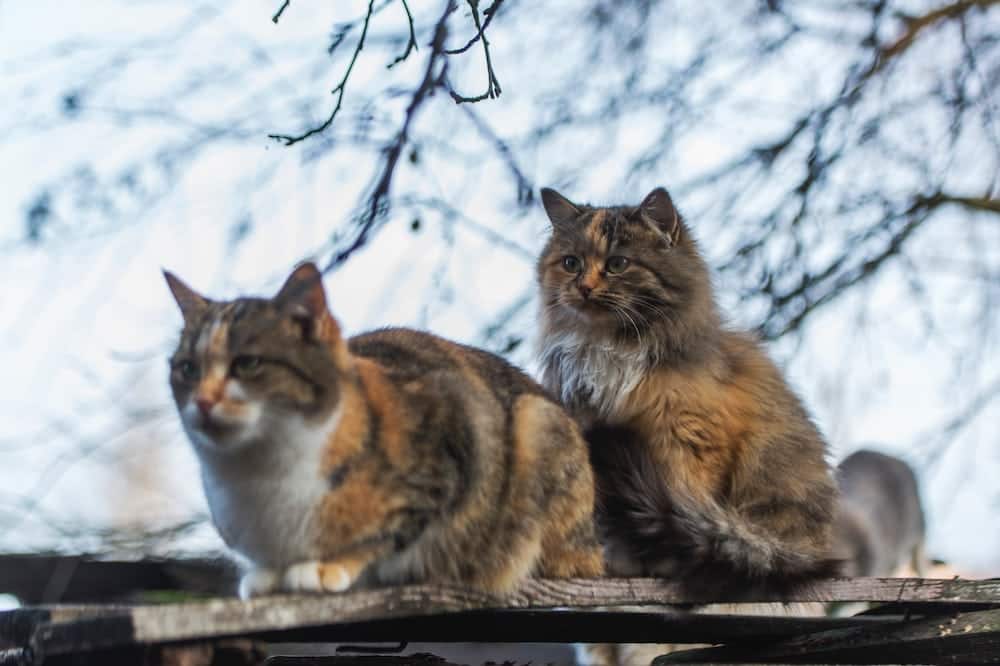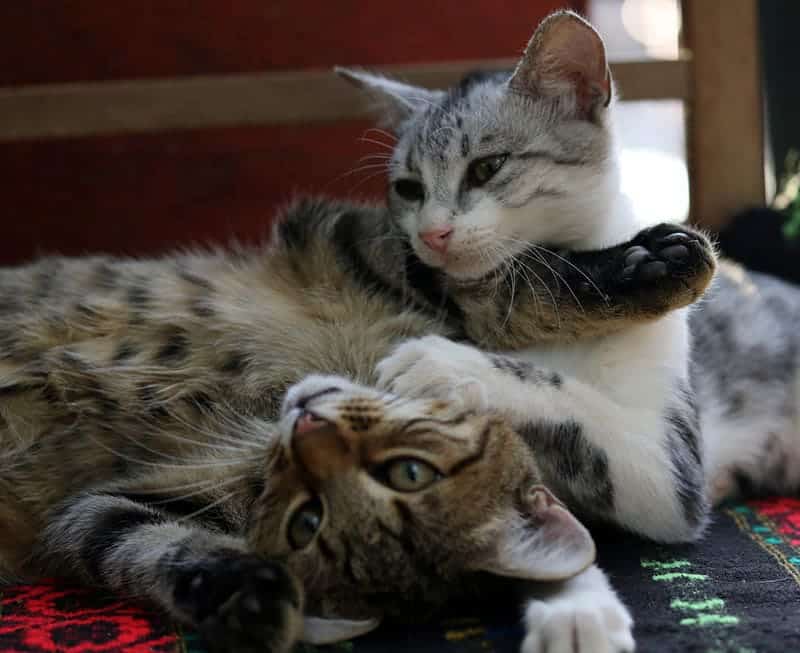Cats can be kept in pairs or groups in a multi-cat household. If you have one cat and are tempted to get another, it’s difficult to predict if your current cat will accept a new one. Felines are socially flexible, but how willing they are to welcome others into their territory can still vary, depending on their personality, previous experiences, age, and neutering status, and it often takes a little bit of time.
So, can two male cats get along? There’s little evidence to suggest that the sex of cats affects whether they get along with other cats, as long as all the cats are spayed or neutered.
Are Male Cats Sociable?
Cats that are not owned tend to live in groups or colonies. In feral groups, the cats tend to be mainly females and their offspring, but that doesn’t mean that unrelated females, male-female pairs, or unrelated males can’t get along. It depends more on the age and personality of the individual cats than their sex.
Overall, younger cats are generally more accepting of new cats. Adults and older cats may be less flexible. A sociable adult cat will likely be friendly; likewise, a solitary adult cat that lived on their own for most of their life will likely stay solitary and be less willing to accept others. But there are no rules, as a cat’s individual personality plays an important role.

Should I Get Another Cat?
If you have a kitten, it’s possible to bring in another kitten and have a pair that will bond strongly as they enter adolescence and adulthood.
If you have an adult cat that’s established in your home, you may want to think carefully about getting another. The introduction period can take a while for both cats to be fully acclimated, and even if you do everything right, some adult cats will never accept another adult cat in their space.
Whether you get mixed-sex cats or same-sex cats, they must be fixed. Aggression and fighting are more likely to occur with sex hormones flowing freely.
It’s important to pair cats with similar personalities, as nervous and scared cats may not enjoy living with very confident and outgoing cats. If you have a young, active male, getting another could be a good option. Similarly, older neutered males may enjoy a male or female kitten.
How Can I Tell if My Cat Wants a Companion?
The individual cat’s personality has more influence than their sex. If your cat, male or female, shows aggression or fear when other cats are around, such as hissing and growling at feral cats or marking outdoors, they’re likely not the type to welcome another cat into their space.
Even if your cat has been sociable with another cat, that doesn’t mean they will welcome a new one into their home. Some cats are naturally easygoing and friendly, while others are more reserved. It’s possible that your cat got along well with that one cat but will have a conflict with another.
Ideally, try to match personality types when looking for a companion for your cat to ensure a harmonious environment for everyone.

Conclusion
Cats living in a social group are more likely to be influenced by their personalities, not their sex. Male cats can bond with other males, provided that they are both social, neutered, and young when introduced. Generally, cats are more social with other related cats, and how well they accept a new cat greatly depends on their individual personalities.
Featured Image Credit: AdinaVoicu, Pixabay











